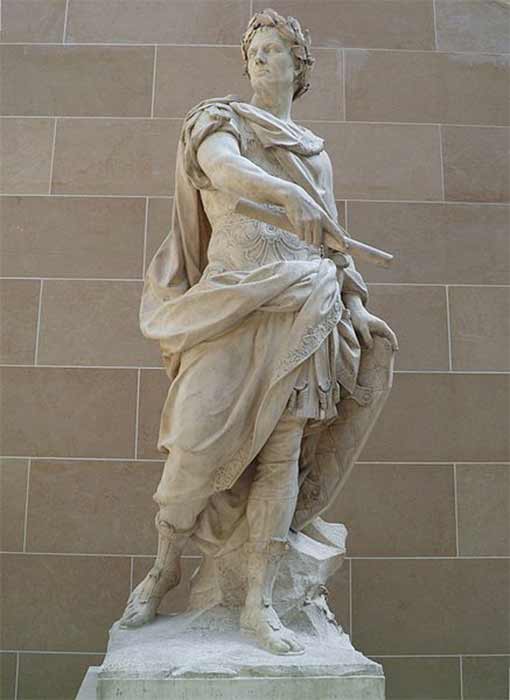The world of late antiquity was extremely suspicious of novelty, anything, that is, that made claim to serious attention. Every innovation, whether of thought or technique, had to be justified in terms of its fulfilling a promise from the past, which granted authority – the more remote, the greater the authority. Jesus’ claim, for example, was that he fulfilled prophetic scripture. His present was justified by the past. Novelty was understood as something childish, whimsical.

Magnificent Egyptian Edfu Temple( Patrick.reb / CC BY-SA 3.0 )
Novelty and Ancestry
One had to aim to emulate the greatness and heroism of old if one wished for recognition as ‘new’ talent. A glimpse of this is the competition that raged between the claims of Egypt and Israel to hold the keys to the purest cults. Egypt, of course, had the advantage of a highly visible architecture of staggering scope and impressiveness. In this respect, Judaea could only claim its new temple, constructed by order of Herod the Great, an Idumaean Arab who achieved power by the grace of Mark Antony (83–30 BC). What the Jews did have, of course, was a history and the texts to back it up – and the texts spoke of a glorious, lost temple of old, built by the wisest king in the world, King Solomon , to whom foreign kings and queens paid respect. When Jesus points out the beauties of rural flowers, he asks, “ Was Solomon in all his glory arrayed as one of these? ” And he takes beauty back to its creative source: God himself. What he, and his followers, had to say about Herod’s temple, on the other hand, would get him, and them, into much trouble.

Model of Jerusalem temple, Solomon’s temple, third temple ( Johnreve /Public Domain )
In Rome, a man on the rise would make claims for illustrious ancestry. Those who opposed him would say, as was said of Caesar Augustus, for example, that his forebears’ hands bore the stain of money changing and manual labor. Julius Caesar could trump most rivals by slipping in the family claim that the goddess Venus was his forebear. If one could win a god to one’s side, one had a chance to advance. It cannot get older than a god.

Statue of Julius Caesar by French sculptor Nicolas Coustou commissioned in 1696 for the Gardens of Versailles, Louvre Museum ( CC BY-SA 2.0)
Divine Authority For Personal Salvation
Now, in such a context, how was any new twist on the profoundest subject of all – divine authority for personal salvation – to be presented?
Like this Preview and want to read on? You can! JOIN US THERE ( with easy, instant access ) and see what you’re missing!! All Premium articles are available in full, with immediate access.
For the price of a cup of coffee, you get this and all the other great benefits at Ancient Origins Premium. And – each time you support AO Premium, you support independent thought and writing.
Excerpt based on The Lost Pillars of Enoch by Tolbias Churton, published by InnerTraditions.
Tobias Churton is a world authority on Gnosticism, Hermeticism, Freemasonry, and Rosicrucianism. Accessible and scholarly, Churton’s works address believers and doubters alike and, remarkably, have stimulated spiritual experiences in some readers. The author of many books, including Gnostic Philosophy and Aleister Crowley in America. His latest book is The Lost Pillars of Enoch
Top Image : Jesus is baptized in the Jordan River by John. ( Davezelenka/ CC BY-SA 3.0 )
Related posts:
Views: 0
 RSS Feed
RSS Feed

















 May 22nd, 2021
May 22nd, 2021  Awake Goy
Awake Goy  Posted in
Posted in  Tags:
Tags: 
















